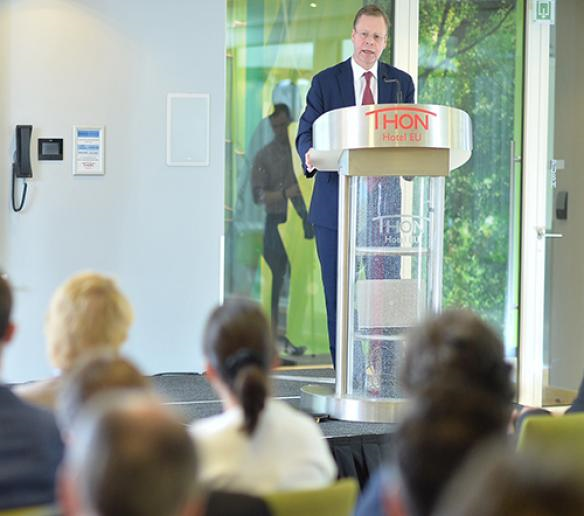Europe's Energy Markets Need Consistent Rules: Centrica CEO
The European Union needs consistent policies to enable companies to make medium to long-term choices and investments, according to the CEO of the UK’s biggest utility Centrica. Addressing an audience of stakeholders in Brussels May 25, Iain Conn said: “Market participants can cope with complexity as long as it is predictable.”
But “too much change, and too many new mechanisms create complexity and a sense of apprehension and wariness to invest. This area is not a strength of the EU, and needs to be rectified. While I recognise there is a lot of effort being put into the Energy Union… I fear this goal of policy consistency will continue to be difficult to achieve.”
European policy on energy – in particular the decarbonisation element, and the subsidies it has taken – has left customers out of pocket, he said. Over the last decade “many solutions had been tested and some, such as Europe’s Emissions Trading System (ETS), were only partially successful.”

Iain Conn (image: Centrica)
He said the “EU must establish a true economy-wide price of carbon. The ETS is not sending a sufficiently strong signal – there are excess allowances at present and too many opt-outs. The reform proposed by the European Commission goes in the right direction but we know its effects will not be immediate. In addition, there are multiple inferred carbon prices in each country and these will need to be rationalised and simplified. As we establish a meaningful price of carbon some carbon leakage to other regions will be inevitable. Waiting for an aligned global price will take too long.”
He argued against the replacement of all gas with electricity. “Gas, renewables and nuclear are expected to show the fastest growth over the next 20 years as sources of power. Of these, natural gas is likely to play the key material role in the transition to a lower carbon economy for both heat and power. Gas is cleaner than coal, cheaper than nuclear and more reliable than intermittent renewables…. It is essential to move away from unabated coal,” he said
He said governments had to get the framework right, given the large scale decommissioning of existing capacity and the need for capacity mechanisms to bring on new capacity. "According to some forecasts, more decentralised new capacity will be added globally over the next decade than centralised capacity." In the UK, he said, the challenge was ensuring capacity in the medium to long term. "I know the Commission is currently considering the role of capacity markets as part of the power market proposals. My own view is that they are an important feature of market reform and necessary to provide long term signals for investment."
The EU must also continue to make the internal market for energy "as efficient as possible... we are a net energy importing region and must encourage as much energy competition as we can and efficient distribution mechanisms, he said. This will cost money, and financing mechanisms for energy investments need to be constructed, perhaps on the model of the European Fund for Strategic Investment."
Centrica says that the legislative initiatives on the power market design and energy efficiency are key milestones, which – if developed correctly – will be essential to building a framework that allows the EU energy sector to work with consumers and deliver affordable, clean and secure energy.
William Powell
Are pipeline politics coming to an end? @FProedrou recent article provides some insight: https://t.co/yLqrXAbi2x
— Natural Gas World (@NatGasWorld) May 26, 2016


